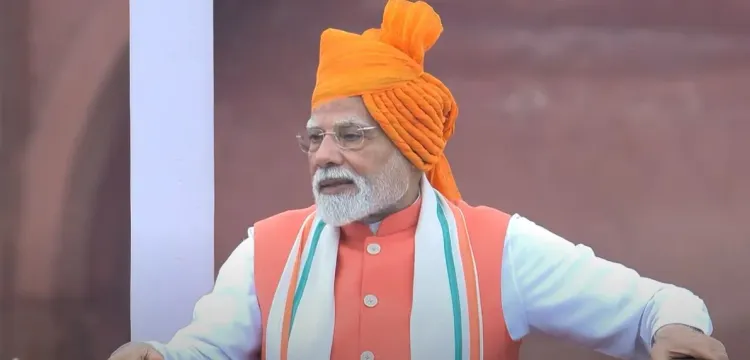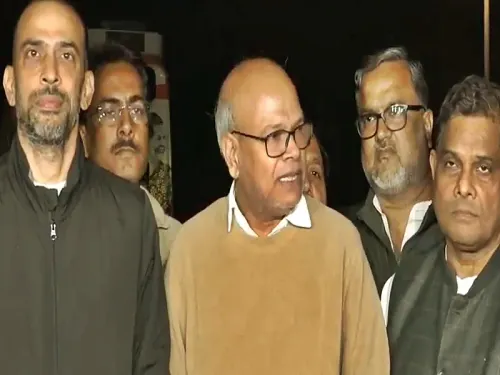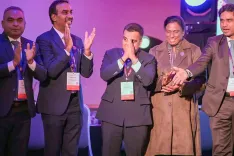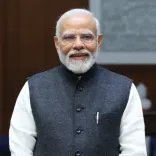How is PM Modi Shaping the Future of Taxation and Self-Reliance?

Synopsis
Key Takeaways
- Introduction of a Task Force to streamline economic laws.
- Reforms to reduce compliance costs for MSMEs and startups.
- Next-generation GST reforms expected by Diwali.
- Significant tax relief for citizens with income tax reforms.
- Focus on building a Viksit Bharat through citizen empowerment.
New Delhi, Aug 15 (NationPress) Prime Minister Narendra Modi on Friday presented a comprehensive vision for reforms aimed at fostering self-reliance, focusing on overhauling taxation, empowering small enterprises, and more.
Speaking to the nation from the Red Fort, PM Modi emphasized India's path towards self-reliance and transformation, asserting that in the last decade, India has been engaged in reforming, performing, and transforming, and now it is time to progress with even greater resolve.
The Prime Minister introduced the establishment of a Task Force for Next-Generation Reforms, which will assess all existing laws, regulations, and processes linked to economic activities.
This Task Force will operate within a designated timeline to minimize compliance costs for startups, MSMEs, and entrepreneurs; liberate them from the anxiety of arbitrary legal actions; and ensure that laws are streamlined to enhance ease of doing business.
He underscored the government's dedication to creating a modern, efficient, and citizen-centric ecosystem, where laws, regulations, and processes are simplified, entrepreneurship is promoted, and every Indian can contribute to building a Viksit Bharat.
At the beginning of his address, PM Modi pointed out that in recent years, the government has initiated a historic wave of reforms, eliminating over 40,000 unnecessary compliances and abolishing more than 1,500 outdated laws. Numerous other laws were simplified in Parliament, consistently prioritizing the interests of citizens.
In the latest session alone, over 280 provisions were discarded, making governance more straightforward and accessible for all Indians. PM Modi reiterated that reform encompasses not just economic aspects but also the transformation of citizens' everyday lives.
He emphasized the significance of Income Tax Reform and Faceless Assessment, which have made the system more transparent and efficient; setting a zero tax rate for annual income up to Rs 12 lakh, a benefit that many could hardly have envisioned a few years back; and replacing outdated criminal laws with the Indian Justice Code, simplifying justice and legal procedures.
These reforms signify a modern, citizen-focused government where ordinary people can experience ease, fairness, and empowerment.
PM Modi stressed that India is committed to structural, regulatory, policy, process, and procedural reforms, establishing a nation where governance serves the people, rather than the reverse.
"The government's reforms aim to lower compliance costs for startups, MSMEs, and entrepreneurs while ensuring freedom from the apprehension of outdated legal provisions. This fosters a more conducive environment for business growth, promoting innovation and economic self-reliance," stated the Prime Minister.
PM Modi announced that next-generation GST reforms will be introduced by this Diwali, aiming to reduce taxes on essential items. "The government will implement Next Generation GST reforms, which will alleviate the tax burden on the common man. It will be a Diwali gift for you," he stated, assuring that these reforms will directly benefit citizens and invigorate economic activity.
PM Modi reiterated that instead of concentrating on others' limitations, India must extend its trajectory of progress.
In an era of escalating economic self-interest, the emphasis must be on fortifying India's capabilities, broadening opportunities, and empowering citizens, he concluded.









